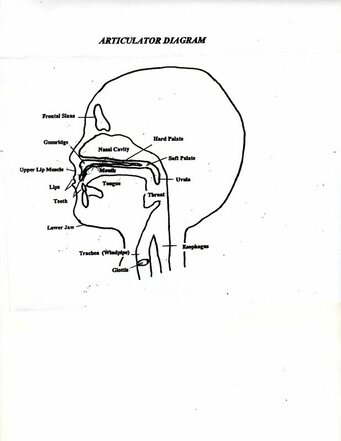Learning from Singers
"He who mismanages speech, mismanages everything." from the Ancient Laws of Manu
Even most people without obvious speech imperfections never realize the voice they were born to have, OR
that good voices depend upon relaxation and free breathing much more than the manipulation of the mouth, lips and tongue!
That although singers spend years training theirs, their methods can be adapted to quickly enhance speaking voices.*
Make yours a professional and personal asset!
Simple Tips for better speech*
1. While your tongue placement affects the formation of your sounds, it is your upper lip muscle (on both sides of the dip under your nose) which controls how easily and fluidly your sounds connect.
2. When you smile or laugh, the upper lip muscle spreads. In American English, the two sections should come together. Therefore, Americans tend to laugh between their words, otherwise they are hard to understand.
3. To breathe properly, the jaw must be relaxed, and it is breath that affects intonation, or the easy rise and fall of your pitch.
4. TMJ, a tight tense jaw, leads often to radiating pain. Some conditions actually require surgery, but many people can get relief by releasing their tense jaw. How? By simple imagining and relaxing, not the jaw itself, but the corners of your mouth.
5. If you really want to improve your speech and avoid having to go to a gym to reduce stress, get a small handball.
Bounce it as a child does - up and down. Don't dribble. Don't hurl or slam it against a wall. Bounce it.
Adults wonder why they find this so hard to do. That is because having grown, the ground and floor are so much further away. Therefore, they lean over at the waist. Awkward. Hard on the lower back. BUT, by simply raising your arm above your waist and then bouncing the ball, it becomes easy. Lifting your arm, lifts your rib cage, automatically taking in a deep breath. Bouncing the ball allows gravity to freely release the rib cage down smoothly and, with it, breath and any stress.
* This is not medical advice. Rather extracts from classical singing and speech training. Any problems, particularly with pain or hoarseness, always consult a medical professional.

